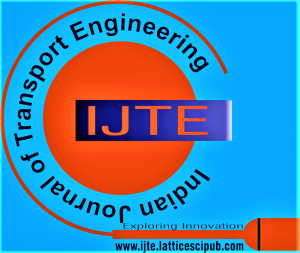![]()
Full Battery and Hybrid Bus based Rapid Transit System as a Cost Effective Urban Transit Mode alternative to Metros in Tier II Tier III Indian Cities
T Dilip Kumar
T Dilip Kumar, Indian Railways Institute of Mechanical and Electrical Engineering, Ayanavaram, Chennai (Tamil Nadu) India.
Manuscript received on 24 September 2021 | Revised Manuscript received on 01 October 2021 | Manuscript Accepted on 15 November 2021 | Manuscript published on 30 November 2021 | PP: 10-18 | Volume-1 Issue-2, November 2021 | Retrieval Number: 100.1/ijte.B1903111221 | DOI:10.54105/ijte.B1903.111221
Open Access | Ethics and Policies | Cite | Mendeley | Indexing and Abstracting
© The Authors. Published by Lattice Science Publication (LSP). This is an open-access article under the CC-BY-NC-ND license (http://creativecommons.org/licenses/by-nc-nd/4.0/)
Abstract: Intra-city travel is a significant part of urban life and a fully functional intra-city transit system will help in reducing the number of private vehicles on the road, thus reducing pollution and traffic congestions. A robust urban transit system helps in the physical expansion of city limits, making education, job, and medical facilities accessible to people living in city fringe areas. This will help in depopulating the Central Business District areas and optimization of real estate cost. Heavy Rail Based Metro Transit system has improved living conditions in Metropolitan cities. The High Capital Investment required for setting up a metro system necessitates the requirement of alternate Transit systems for Medium and smaller cities. This paper delves into this important area of suggesting an alternate urban transit model for Tier II and Tier III Indian cities. In this paper, modifications were suggested in the Metro Neo specification issued by the Ministry of Housing and Urban Affairs [10], to make it more cost-effective (to construct and maintain), agile, and with scope to harness new technologies as they become commercially viable in the future. Elevated or dedicated Busways with Full Diesel Hybrid Buses comprising an Energy Storage system (Li-ion battery pack) and a diesel power pack are suggested as the rolling stock for the transit system. This suggested rolling stock will be not only cost effective but also environmentally friendly. In the future, the Diesel Power Packs in the buses can be replaced with Hydrogen Fuel Cells or additional batteries to enable full electric and non-fossil fuel operation. The need for further research in developing cost-optimized structures in the Construction of viaducts and bus stations is felt and details in these areas have been highlighted. The suggested system will have the flexibility of a Bus Rapid Transit system and shall have some advantages of a metro system. Even in big cities with a full-fledged Metro system, the suggested modified Metro Neo system can act as a feeder system from faraway places. The paper proposes essential features of a transit system that is robust in present and is future-ready.
Keywords: Metro Neo, light Rail Transit, Metro Rolling Stock, Bus Rapid Transit System, Diesel Hybrid Buses.
Scope of the Article: Urban Transportation Systems and Infrastructure
